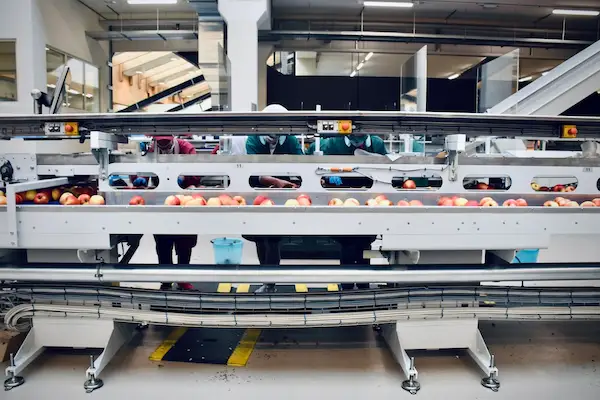When it comes to the food processing industry, efficiency is crucial for staying competitive and maintaining high-quality products. Streamlining operations can lead to increased productivity, reduced costs, and greater customer satisfaction. In this article, we will explore four key areas where you can make significant improvements in your food processing plant. Keep reading to discover practical strategies for enhancing your facility’s performance.
Optimizing Equipment and Machinery
One of the most critical aspects of streamlining operations is ensuring that your facility’s equipment and machinery are optimized for peak performance. This involves regularly inspecting and maintaining your equipment, as well as upgrading to more efficient models when appropriate. For instance, utilizing a screw compressor from Genemco can improve energy efficiency, reduce costs, and provide a more consistent supply of compressed air. Genemco offers the largest selection of used industrial refrigeration equipment so food processing operators can easily find screw compressors and other equipment from top manufacturers.
Investing in automation is another strategy for optimizing equipment and machinery. Automating certain processes can reduce the reliance on manual labor, resulting in faster production times, improved consistency and quality, and lower labor costs. Periodic evaluations of equipment and workflow can identify bottlenecks and inefficiencies, allowing you to make informed decisions that will enhance your overall operations.
Employee training is also essential for operating equipment and machinery effectively. Ensuring that your workforce is skilled and knowledgeable about the tools they use can decrease downtime, prevent accidents, and boost overall productivity.
Enhancing Energy Efficiency
Improving energy efficiency is not only a cost-saving measure; it also plays a vital role in reducing the environmental impact of your food processing plant. By conducting regular energy audits, you will be able to identify areas where improvements can be made. This might include upgrading to more energy-efficient machinery, insulating pipes, or optimizing heating and cooling systems.
Implementing better waste management practices can also lead to increased energy efficiency. By minimizing food waste, you can offset production costs and reduce the demand for essential resources such as water and energy. Furthermore, recycling and repurposing waste materials can create additional revenue streams and help your facility become more environmentally friendly.
Streamlining Supply Chain Management
Efficient supply chain management plays a pivotal role in ensuring that your food processing facility runs smoothly. By optimizing your supply chain, you can minimize delays and disruptions, reduce costs, and provide a more consistent flow of raw materials and finished products. This involves carefully selecting suppliers and establishing strong relationships with them, ensuring that all parties understand their roles and responsibilities in the supply chain process.
Adopting sophisticated inventory management systems can help streamline supply chain management by providing real-time information on stock levels, raw material consumption, and production rates. This data allows you to make informed decisions regarding purchasing and production, preventing expensive delays or surplus inventory.
Furthermore, having a robust quality control system ensures that raw materials and finished products meet the highest quality standards, minimizing the risk of costly recalls and protecting your brand reputation. Being proactive about maintaining quality standards will ultimately lead to a more streamlined and efficient supply chain process.
Implementing Continuous Improvement Practices

Adopting a continuous improvement mindset is integral to streamlining operations at your food processing plant. Rather than considering efficiency improvements as a one-time project, continuous improvement involves regularly evaluating your operations and implementing changes as needed. Encouraging your employees to participate in this process can foster a culture of innovation and accountability, leading to greater efficiency and productivity.
Some common continuous improvement methodologies include Lean Manufacturing, Six Sigma, and Total Quality Management (TQM). Embracing these principles can help guide your efforts in streamlining operations and improving performance.
Streamlining operations at your food processing plant requires a multifaceted approach that considers equipment optimization, energy efficiency, supply chain management, and continuous improvement. By focusing on these key areas and engaging your workforce, you can enhance productivity, reduce costs, and maintain the highest quality standards in your facility.







